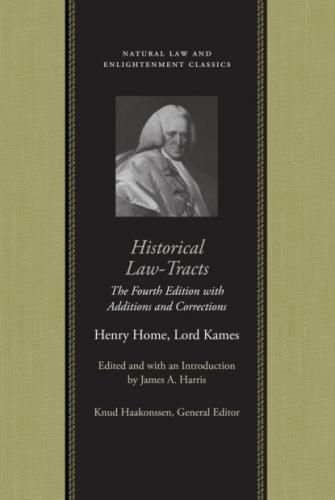It is probable, that as singular battle gave place to the oath of purgation, so this oath gave place to juries. The transition was easy, there being no variation, other than that the twelve compurgators, formerly named by the defendant, were now named by the judge. The va-<85>riation proved notably advantageous to the defendant, though in appearance against him. Singular battle wearing out of repute, the injustice of burdening with a proof of innocence every person who is accused, was clearly perceived; and witnesses being now more frequently employed on the part of the prosecutor to prove guilt, than on the part of the defendant to prove innocence, it was thought proper that they should be chosen by the judge, not by the defendant. If it be demanded, Why not by the prosecutor, as at present? it is answered, That at that time the innovation would have been reckoned too violent. However this be, one thing appears from Glanvil,‡ That in all questions concerning the property of land, founded on the brieve of right, a privilege was about that time bestowed on the defendant, to have the cause tried by a jury, instead of singular battle. As this was an innovation authorised by reason, and not by statute, it was probably at first attempted in questions upon the brieve of right only; matters of less importance being left upon the oath of purgation. That a jury trial, and the oath of purgation, were in use both of them at the same time, we have evidence from the Regiam Majestatem,|| compared with the foregoing quotations. But these two me-<86>thods could not long subsist together. The new method of
[print edition page 60]
trial by jury, was so evidently preferable, that it would soon become universal, and be extended to all cases civil and criminal: In fact, we find it so extended as far back as we have any distinct records.
From this deduction it appears, that a jury was originally a number of witnesses chosen by the judge, in order to declare the truth.* And hence the process against a jury for perjury and wilful error. This explains also why the verdict of a jury is final, even when they are convicted of perjury. Singular battle, from the nature of the thing, was so; the oath of purgation, substituted to singular battle, was so; and a verdict, substituted to an oath of purgation, fell of course to be so. It likewise explains the practice of England, that the jury must be unanimous in their verdict; for it was required, that the compurgators should be so in their oath of purgation. The same rule probably obtained in Scotland: But at present, and as far back as our records carry us, the verdict is fixed by the votes of the majority.
In later times, the nature and office of a jury were altered. Through the difficulty of procuring twelve proper witnesses acquainted with the facts, twelve men of skill and integrity were chosen, to judge of the evidence produced by <87> the litigants. The cause of this alteration may be guessed, supposing only that the present strict forms of a jury-trial were at first not in use. If jurymen, considered as witnesses, differed, or were uncertain about the facts, they would naturally demand extraneous evidence; of which when brought, it belonged to them to judge. It is likely, that for centuries jurymen acted thus both as witnesses and as judges. They may, it is certain, act so at this day; though, for the reason above given, they are commonly chosen by rotation, without being regarded in the character of witnesses. Hence it is, that a jury is now considered chiefly as judges of the fact, and scarce at all as a body of witnesses. And this explains why the process for perjury against them is laid aside: This process cannot take place against judges, but only against witnesses. <88>
Конец ознакомительного фрагмента.
Текст предоставлен ООО «ЛитРес».
Прочитайте эту книгу целиком, купив полную легальную версию на ЛитРес.
Безопасно оплатить книгу можно банковской картой Visa, MasterCard, Maestro, со счета мобильного телефона, с платежного терминала, в салоне МТС или Связной, через PayPal, WebMoney, Яндекс.Деньги, QIWI Кошелек, бонусными картами или другим удобным Вам способом.
